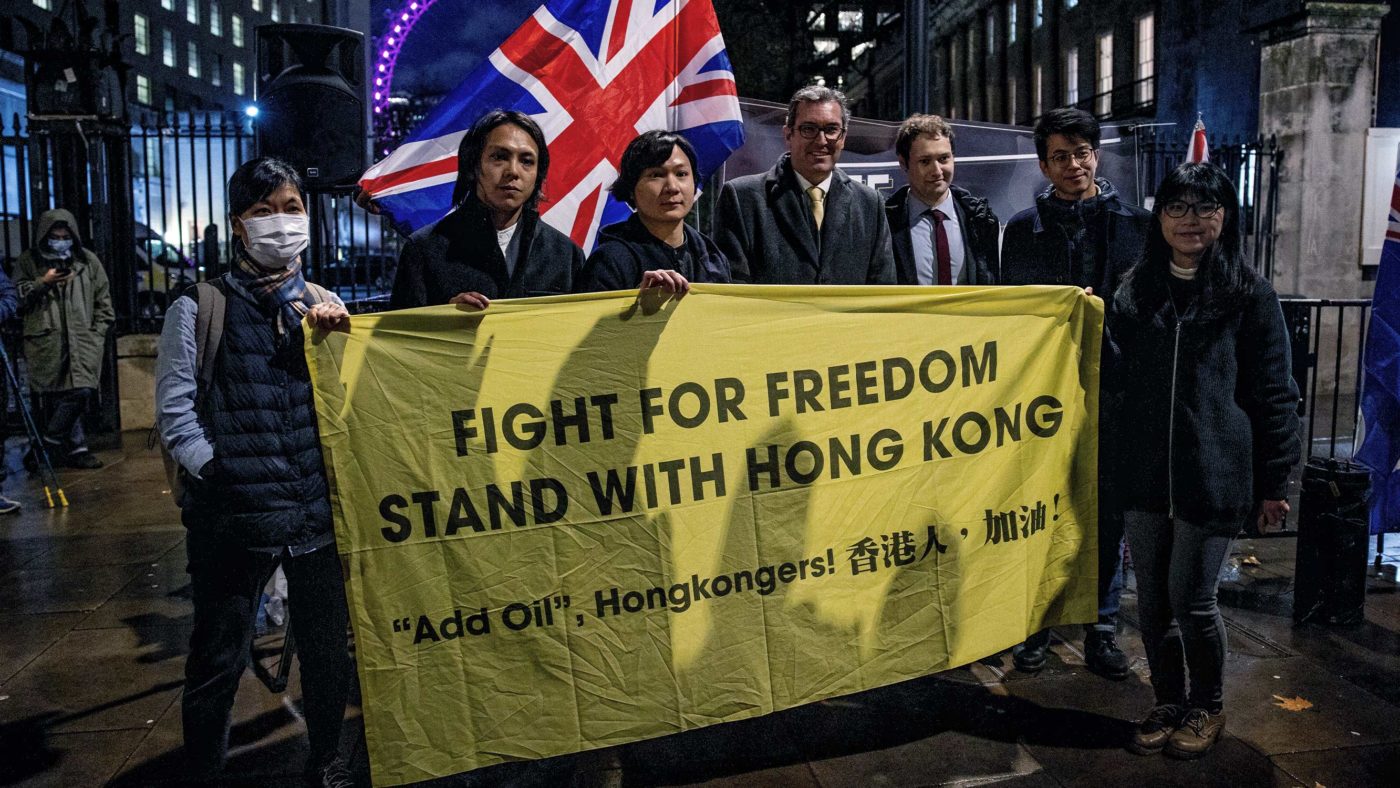When MPs debate the Nationality and Borders Bill this afternoon, they will have the chance to do right by the young people who had stood up to Chinese tyranny. Damian Green’s amendment, which has the support of high-profile Tories such as Tom Tugendhat, Nus Ghani and Iain Duncan Smith, would extend the existing BNO visa scheme to those under 25.
The BNO scheme, long campaigned for by the Adam Smith Institute, has undoubtedly been a great start in doing our duty to Hong Kong and offering refuge for those fleeing Beijing’s authoritarianism. Where it falls down, however, is in failing to offer a haven for young people – which is especially important given that 93% of those charged over pro-democracy protests are under 25. These are the people who will suffer the most at the hands of the CCCP, and it is entirely arbitrary that they are being left behind.
As a former Hong Konger myself (albeit one with a British passport), I’ve experienced the best of both Asia’s World City and the UK. And while vastly different, I know that young Hong Kongers would find the UK a place of shared values, a new home in which they can seek prosperity away from the ever tightening grip of the CCCP. Nor, thanks to the scheme, would these newcomers put any more pressure on our already extremely restricted and oversubscribed asylum system. Instead, they would be offered a more straightforward path to British citizenship.
Extending the BNO scheme is therefore not only the right thing to do by Hong Kong and its people, but also of great potential benefit to the UK. Hong Kong is a modern paragon of prosperity, of development in the face of adversity and against all odds, and its people are steeped in entrepreneurship and optimism. Hong Kong’s story is one of resourcefulness, resolve and rapid growth. It is a territory defined by its rapid ‘levelling up’, and its people’s values and work ethic reflect that.
Much is made of the German post-war economic miracle, but perhaps as much should be made of Hong Kong’s. At the end of the Second World War, Hong Kong found itself free of Japanese occupation but economically destitute. Resumption of its entrepot model of trade was untenable after a trade embargo with China during the Korean War.
Rather than languish, Hong Kong fuelled development with a new model. By acting as a refuge for entrepreneurs fleeing the once capitalist bastion of Shanghai, it benefited from a huge influx of capital and talent that laid the foundations for an industrial boom through the 1950s. Just as Hong Kong itself benefited immensely from taking in those seeking freedom from tyranny, so too can the UK benefit from young and aspirational Hongkongers seeking democratic freedoms curtailed by the National Security Law.
It was not just welcoming entrepreneurs and their expertise that propelled Hong Kong to prosperity. Between 1961 and 2009, Hong Kong’s real GDP per capita was multiplied by a factor of nine, in large part due to Sir John Cowperthwaite’s tenacious commitment to economic freedom. Despite pressure to adopt a ballooning welfare state (and subsequently stagnant economy) modelled after Britain’s own, he stuck to principles of low government spending, efficient regulation, openness to international trade and political freedom. Britain faces a similar challenge today. With the post-pandemic pressure for the state to solve every possible problem, it will take steadfast resolve and a clear vision to chart a different course.
Unfortunately, this does not seem to be the way things are going. The Online Safety Bill, while nowhere near as authoritarian as the National Security Law, still contains some perturbing prescriptions around speech that is ‘legal but harmful’. Our government spending continues unabated, despite the Chancellor’s claims to fiscal prudence. The UK’s tax burden is the highest it’s been in 70 years, and even outside the EU our own red tape is still stifling post-pandemic recovery.
Opening up the BNO Visa route to under 25s not only does what is right by those most affected by the cruelty of communist oppression, but opens a channel for new businesses to thrive and wealth to be created – that’s an opportunity we would be foolish to pass up.
Click here to subscribe to our daily briefing – the best pieces from CapX and across the web.
CapX depends on the generosity of its readers. If you value what we do, please consider making a donation.


